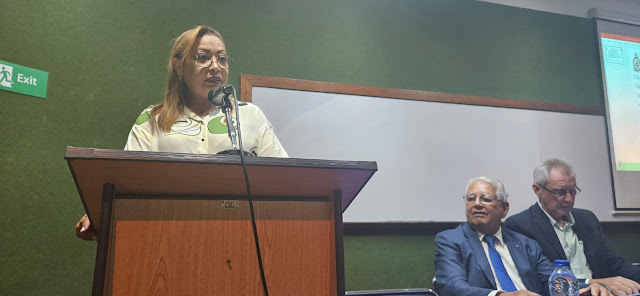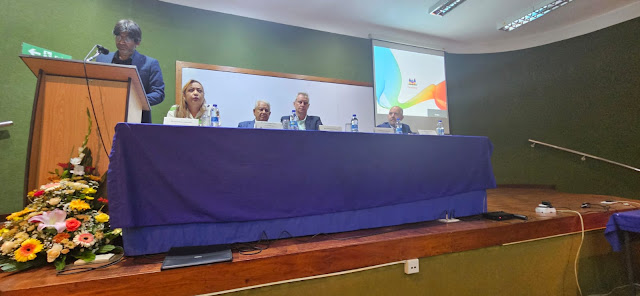Introduction
On Tuesday, February 4, 2025, the Société de Technologie Agricole et Sucrière de Maurice (STASM), in collaboration with Faculty of Agriculture of the University of Mauritius, hosted talks on the theme "From sugar to renewable biomass: the re-engineering of the Mauritian sugar industry." This event brought together experts, academics, students, and industry leaders to explore the transformative journey of one of Mauritius' most iconic industries.
Associate Professor Joyce Govinden-Soulange, Dean of the Faculty of Agriculture, has also addressed the audience (click to read more) together with Professor Mohammad Issack Santally, Pro-Vice-Chancellor (Academia) of the University of Mauritius. (click here to read more)
 |
Associate Professor Joyce Govinden-Soulange, Dean of the Faculty of Agriculture |
 |
Professor Mohammad Issack Santally |
The sugar industry has been a cornerstone of Mauritius' economy for centuries, shaping its history, society, and landscape. From its introduction by Dutch settlers in 1639 to its transformation into a renewable biomass sector, the industry reflects both the challenges of global competition and the opportunities of innovation, This lecture was delivered by Dr. Jean Claude Autrey, CSK, General Secretary of the International Society of Sugar Cane Technologists. (click here to read more)
 |
Dr. Jean Claude Autrey, CSK |
 |
Mr Sebastien Giraud |
In this speech, the President of the Société
de Technologie Agricole et Sucriere de Maurice, STASM, Mr. Jean François Lagesse, emphasised on the importance of collaboration,
innovation, and the need to engage young talent in shaping the future of
agriculture in Mauritius. His speech also emphasised the history of the
STA and its role in the agricultural sector. Click here to read more
2.jpg) |
Mr. Jean François Lagesse |










2.jpg)



